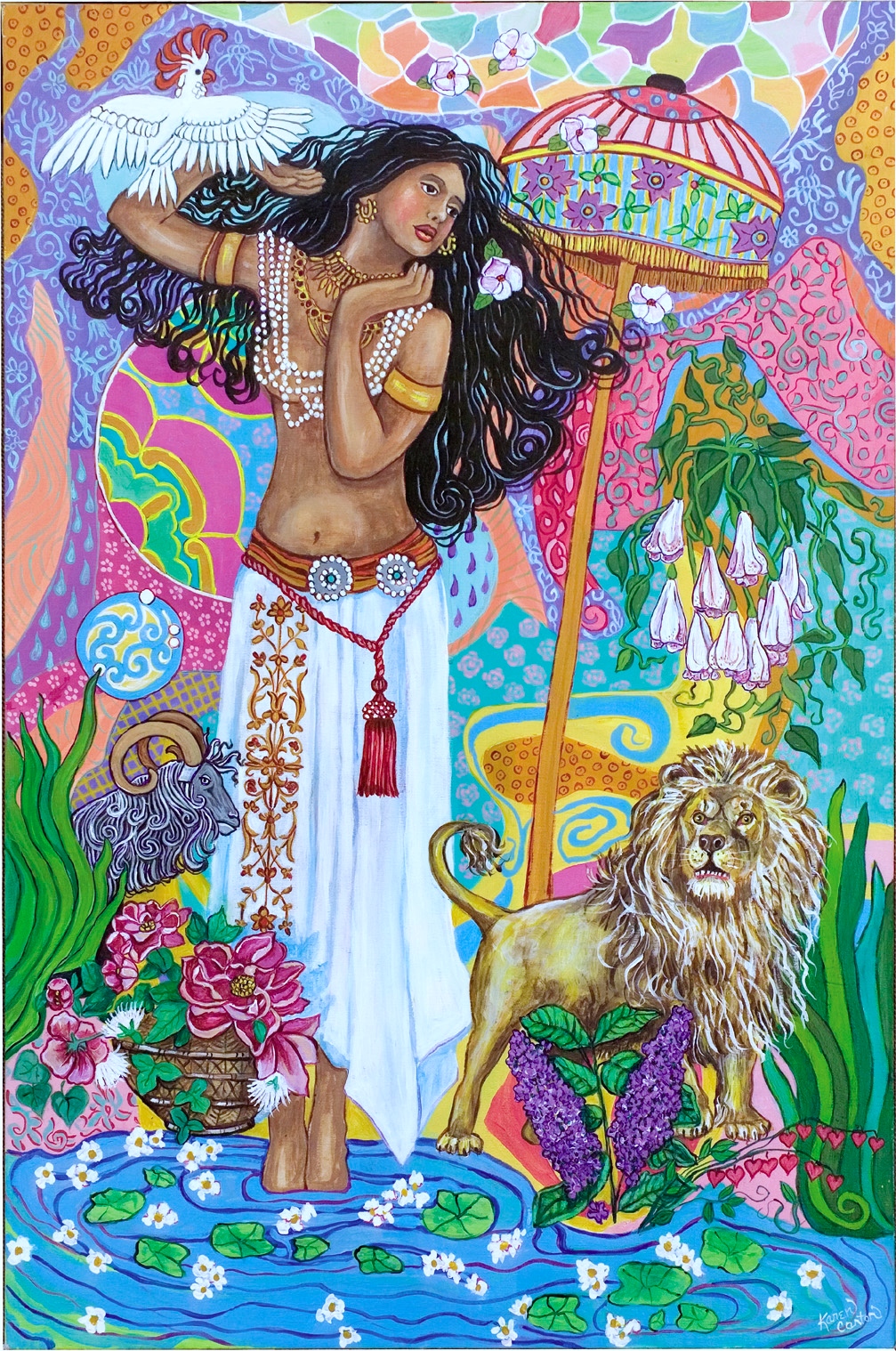The Shulammite Woman: Arise, My Love, and Come Away

Passionate. Sensual. Provocative. Eloquent. Erotic. It’s all there, in the Bible, in the beautiful collection of poems known as the Song of Solomon, otherwise known as the Song of Songs. In this Sunday’s lectionary reading (RCL), we hear the main character in the Song—an unnamed woman—eloquently describe how much she yearns to be with her lover—and how she will fully embrace him when he arrives.
Listen to these beautiful words: “My beloved speaks and says to me: ‘Arise, my love, my fair one, and come away; for now the winter is past, the rain is over and gone…the flowers appear on the earth…’” (Song of Solomon 2:10-11)
Here’s the thing: when credit is due, give the credit. The woman in these pages speaks more than any other woman in the Old and New Testaments. Hot, sensual and evocative language holds sway here—and it is the top word count for a woman in the Bible, excluding the Apocrypha. (Once the Apocrypha is added, a murderer tops the list. Really.)
Raised to an intensity not seen anywhere else in the Bible, a woman’s sexual and emotional desires are on full display. Remind yourself that this is sacred literature and consider what new light, if any, that might throw on your understanding of the Bible thus far.
Authorship and content of the Song of Solomon has been the subject of endless debates. Some say that its author is Solomon, describing one of his 700 marriages. Others insist that a range of poets, writers, and oral storytellers are responsible for different parts of the book. All of those theories may hold some truth; yet there is a common thread: unmistakably, it is the voice and heart of a woman who leads the charge here.
This seems the most plausible scenario: the Shulammite woman (who is called by that name because of her geographical origin) has been called to Solomon’s harem, but desires to be with her true love, a shepherd, and to her—a true king. She has been away from him and misses him; she sees herself searching for him; she pictures him coming for her, and she loves him deeply, expressing the most profound levels of personal intimacy and desire.
It is what, for centuries, hearts of faith have seen as the yearning of God for God’s people, for Christ and the Church, and we for God. We see here at its most basic the true passion of love between two souls, and perhaps therein, our closest earthly experience of God’s love for us.
———————————————-
Adapted from Bible Women: All Their Words and Why They Matter, published by Foreward Movement, 2014
Artwork from The Scarlet Cord, Conversations from God’s Chosen Women, published by John Hunt Publishing, 2010. Artist: Karen N. Canton


